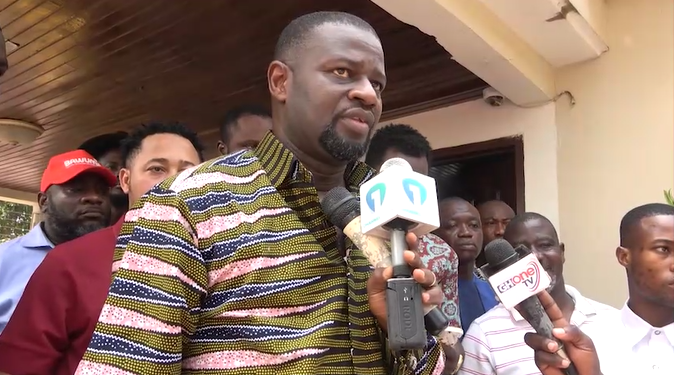The political landscape of Ghana’s Ablekuma North Constituency remains fraught with tension and uncertainty a month after the parliamentary elections, with the New Patriotic Party (NPP) threatening to disrupt parliamentary proceedings until the results are finalized and their candidate declared the winner. The delay stems from disputes surrounding the collation process, which has been marred by allegations of irregularities and even violence, including damage to property at the Electoral Commission’s regional office. Minority Chief Whip, Frank Annoh-Dompreh, has emerged as a vocal figure in the NPP’s campaign to resolve the impasse, issuing stern warnings to both the opposition National Democratic Congress (NDC) and the Electoral Commission.
Annoh-Dompreh’s pronouncements reflect the NPP’s growing frustration with the protracted delay and their unwavering belief that their candidate, Ekua Afriyie, secured victory. He has accused the NDC, and specifically mentioned Member of Parliament Mahama Ayariga, of obstructing the collation process and denying the NPP’s win. His warning that the NDC “will never have peace in Parliament” until the issue is resolved underscores the seriousness of the NPP’s stance and the potential for parliamentary disruption. This threat of parliamentary gridlock highlights the high stakes involved in the Ablekuma North election and the potential for political instability if a resolution is not reached swiftly.
The dispute’s intensity is further amplified by the actions of both candidates, Ekua Afriyie of the NPP and Ewurabena Aubyn of the NDC, who have erected billboards across the constituency proclaiming their respective victories. This public display of confidence, coupled with the ongoing stalemate in the official results declaration, contributes to the escalating tension and fuels the potential for further conflict. The competing claims of victory serve as a constant reminder of the unresolved election and further polarize the constituency.
The NPP’s demands extend beyond political posturing; they include a direct call for action from the Inspector General of Police (IGP). Annoh-Dompreh has urged the IGP to investigate and prosecute NDC supporters allegedly involved in disrupting the collation process and causing damage to the Electoral Commission’s property. This demand for police intervention reflects the NPP’s belief that the NDC is actively working to undermine the electoral process and prevent their rightful victory from being recognized. The call for law enforcement involvement also underscores the potential for the political dispute to escalate into legal and potentially criminal proceedings.
Adding to the pressure, the NPP has issued a one-week ultimatum to the Electoral Commission to declare Ekua Afriyie the winner of the Ablekuma North election. This ultimatum represents a significant escalation in the NPP’s strategy, moving from warnings to setting a concrete deadline for action. The one-week timeframe puts significant pressure on the Electoral Commission to resolve the outstanding issues and announce a final result, further intensifying the already volatile political climate. The ultimatum could also be interpreted as a strategic move to force the Electoral Commission’s hand and bring the matter to a head, regardless of the outcome.
The Ablekuma North Constituency election dispute presents a complex and potentially destabilizing situation in Ghanaian politics. The NPP’s threats of parliamentary disruption, their demands for police intervention, and the public display of competing victory claims by the candidates all contribute to a highly charged atmosphere. The one-week ultimatum issued to the Electoral Commission further amplifies the pressure and sets the stage for potential escalation if a resolution is not reached within the given timeframe. The situation underscores the importance of a transparent and efficient electoral process to maintain political stability and public trust in democratic institutions. The outcome of this stand-off will undoubtedly have significant implications for the political landscape of the constituency and potentially for the broader political climate in Ghana.














